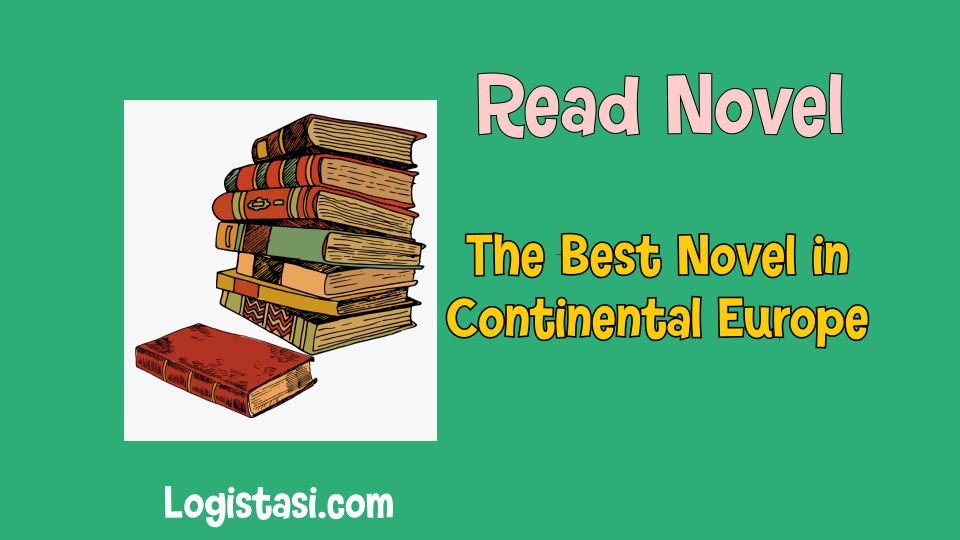
The Best Novel in Continental Europe


Discover the finest literary gems from the continent of Europe as we explore the best novel in the continent of Europe. Delve into captivating narratives, rich cultural insights, and timeless themes that have left a lasting impact on readers worldwide.
Europe has been the birthplace of countless literary marvels that have captured the hearts and minds of readers throughout history. From heart-wrenching tragedies to thought-provoking philosophical works, European novels have shaped the world of literature. In this comprehensive article, we will take you on a literary journey, exploring the most exceptional novels to ever grace the continent. Embrace the enchanting narratives, cultural diversity, and profound wisdom woven into the fabric of these European classics.
Name the Best Novel in the Continent of Europe
In this section, we will dive into the crème de la crème of European literature, showcasing masterpieces that have withstood the test of time and continue to influence generations of readers.
1. “Don Quixote” by Miguel de Cervantes
“Don Quixote,” penned by Spanish author Miguel de Cervantes, is undoubtedly one of Europe’s greatest literary contributions. This iconic novel, published in two parts in 1605 and 1615, revolves around the adventures of the delusional yet endearing knight-errant, Don Quixote, and his loyal squire, Sancho Panza. Cervantes brilliantly blends humor, chivalry, and social commentary, making “Don Quixote” a timeless masterpiece.
- “War and Peace” by Leo Tolstoy
Russian author Leo Tolstoy’s epic novel “War and Peace” is a magnum opus that delves into the lives of aristocratic families during the Napoleonic era. Spanning over a thousand pages, this literary giant masterfully weaves together historical events, personal dramas, and philosophical reflections. It remains a quintessential portrayal of human nature and the complexities of war and peace.
3. “Anna Karenina” by Leo Tolstoy
Another brilliant work by Tolstoy, “Anna Karenina,” is a captivating exploration of love, passion, and societal norms. This tragic tale follows the passionate affair between Anna Karenina and Count Vronsky, challenging the norms of 19th-century Russian society. The novel’s rich character development and profound themes have solidified its position as a classic of world literature.
4. “Pride and Prejudice” by Jane Austen
Moving from Russia to England, we encounter the timeless romance of “Pride and Prejudice” by Jane Austen. Set in the Regency era, this novel introduces us to the unforgettable Elizabeth Bennet and the enigmatic Mr. Darcy. Austen’s witty social commentary and the chemistry between her characters make this novel an enduring favorite among readers.
5. “Crime and Punishment” by Fyodor Dostoevsky
Russian literature takes center stage again with Fyodor Dostoevsky’s psychological masterpiece, “Crime and Punishment.” The novel follows the tormented mind of Raskolnikov, a poverty-stricken student turned murderer. Dostoevsky’s exploration of guilt, redemption, and the human psyche has left an indelible mark on world literature.
6. “The Brothers Karamazov” by Fyodor Dostoevsky
Remaining in Russia, we encounter Dostoevsky’s final and arguably greatest work, “The Brothers Karamazov.” This philosophical novel delves into complex family dynamics, faith, and morality through the lives of the three Karamazov brothers. Dostoevsky’s narrative brilliance and profound exploration of human nature continue to resonate with readers worldwide.
7. “One Hundred Years of Solitude” by Gabriel García Márquez
Venturing into the magical realm of Latin America, we encounter Gabriel García Márquez’s “One Hundred Years of Solitude.” This enchanting novel follows the Buendía family over seven generations, blending magical realism with social and political commentary. García Márquez’s lyrical prose and imaginative storytelling earned him a Nobel Prize in Literature in 1982.
8. “The Picture of Dorian Gray” by Oscar Wilde
Shifting our focus to Ireland, we delve into the dark and captivating world of Oscar Wilde’s “The Picture of Dorian Gray.” This gothic novel tells the story of Dorian Gray, a young man who sells his soul for eternal youth while his portrait ages in his place. Wilde’s exploration of vanity, hedonism, and moral decay makes this novel an enduring classic.
9. “The Trial” by Franz Kafka
Embarking on a journey to Central Europe, we encounter the enigmatic and surreal world of Franz Kafka’s “The Trial.” This haunting novel follows the nightmarish trial of Josef K., a man arrested for an unknown crime. Kafka’s exploration of bureaucracy, power, and the absurdity of human existence continues to intrigue and perplex readers.
10. “To Kill a Mockingbird” by Harper Lee
Crossing the channel to the United Kingdom, we encounter Harper Lee’s timeless American classic, “To Kill a Mockingbird.” This Pulitzer Prize-winning novel addresses issues of racial injustice and moral growth through the eyes of a young girl named Scout Finch. Lee’s portrayal of empathy and compassion has resonated with readers of all ages.
11. “Dracula” by Bram Stoker
Returning to Eastern Europe, we enter the realm of Gothic horror with Bram Stoker’s “Dracula.” This iconic novel introduced the world to Count Dracula, a vampire seeking new blood in England. Stoker’s epistolary style and chilling depiction of the undead have become synonymous with the vampire genre.
12. “The Master and Margarita” by Mikhail Bulgakov
Venturing back to Russia, we encounter Mikhail Bulgakov’s “The Master and Margarita.” This satirical and fantastical novel takes place in Moscow during the Soviet era. With elements of the supernatural and sharp criticism of Soviet society, the novel has garnered a cult following both in Russia and beyond.
13. “The Name of the Rose” by Umberto Eco
Crossing into Italy, we encounter Umberto Eco’s intellectual mystery, “The Name of the Rose.” Set in a 14th-century Italian monastery, the novel follows the Franciscan friar William of Baskerville as he investigates a series of mysterious deaths. Eco’s erudite storytelling and historical accuracy have garnered critical acclaim.
14. “The Book Thief” by Markus Zusak
Traveling to Germany during World War II, we discover Markus Zusak’s heartrending novel, “The Book Thief.” Narrated by Death, the novel follows a young girl named Liesel Meminger as she discovers the power of words and literature amidst the horrors of war. Zusak’s poetic prose and emotional depth make this novel a true gem.
15. “Madame Bovary” by Gustave Flaubert
Venturing into France, we encounter Gustave Flaubert’s



